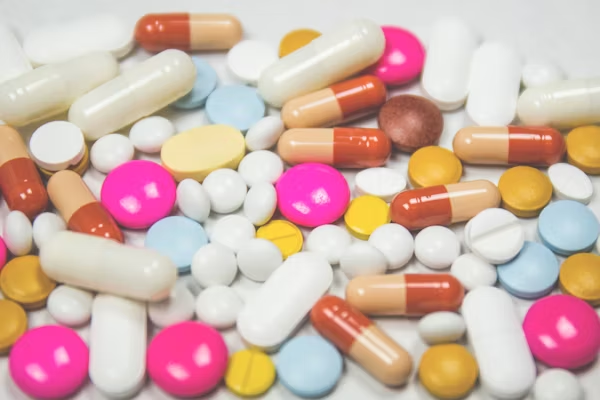How Pharmaceutical Companies Put Profits Before People
In America, nearly one in five adults can’t afford their prescribed medications. Yes, around 22% of Americans had to let go of prescribed medicines because of high cost. It is like being forced to choose between putting food on the table or taking a life-saving drug. This harsh reality is just one symptom of a deeply rooted problem: the pharmaceutical industry’s pursuit of profits over patient well-being.
Driven by shareholder interests and sky-high executive bonuses, these pharmaceutical companies employ questionable tactics to maximize profits. This blog post discusses the disturbing truth about how pharmaceutical companies prioritize profit over people.
We’ll examine their pricing strategies, manipulative marketing tactics, skewed research priorities, and the devastating consequences for patients worldwide.
Pricing Strategies
One of the most egregious ways pharmaceutical companies put profits before people is through their outrageous pricing of new drugs. Due to this, 9.2 million adults in America refuse to take prescribed medications, according to the CDC. It’s like a race to squeeze every last penny from patients who desperately need these medications to live.
Take insulin, a life-saving drug for millions of Americans with diabetes. Its price has doubled and tripled over the past decades. A study by Rand Corporation found that the gross price of insulin is significantly higher than that of 33 developed countries. Even after applying the U.S. gross-to-net discount, the price is 233% higher.
This trend isn’t limited to insulin. Cancer medications often exceed $100,000 per year, pushing families into bankruptcy and forcing difficult choices about treatment. The consequences are dire. Many American adults reported being unable to afford their prescribed medications. This is a matter of life and death for countless individuals.
The pharmaceutical industry defends these prices, citing research and development costs. However, the reality is far more complex. Many new drugs are built upon publicly funded research, yet their prices reflect private profits, not public good.
The pharmaceutical industry’s quest for profit continues beyond initial drug prices. They’ve devised clever strategies to extend their monopolies and keep cheaper generic versions off the market.
One such tactic is called evergreening. This involves minor changes to existing drugs, such as altering the dosage or delivery method and filing for new patents. It’s a game of legal maneuvering designed to prolong exclusivity and maintain high prices.
A prime example is AbbVie’s manipulation of the patent system for Humira, the world’s top-selling drug. Through strategic patent filings, AbbVie extended its monopoly on Humira for years, delaying the entry of affordable generic alternatives until 2023. This delay cost patients and healthcare systems billions of dollars in unnecessary spending.
Another shady practice is pay-for-delay agreements. In these deals, drug companies bribe generic manufacturers to delay the release of cheaper alternatives. The Federal Trade Commission (FTC) report estimated that these agreements cost American consumers $3.5 billion annually. It’s a blatant scheme that keeps drug prices artificially high, harming patients and taxpayers alike.
These tactics are unethical but also detrimental to public health. They delay access to affordable medications, forcing patients to choose between paying exorbitant prices or going without treatment.
Marketing Tactics
The United States is one of the few countries where pharmaceutical companies are allowed direct-to-consumer (DTC) advertising. This means they can market prescription drugs directly to you through television commercials, magazine ads, and even social media campaigns. While presented as educational, these ads often prioritize profit over accurate information.
DTC advertising has been linked to increased prescription rates, leading to higher healthcare costs for individuals and society. These ads can create a false sense of urgency, pushing patients to request medications they may not need. It’s a marketing strategy that prioritizes profit over public health, transforming medications into commodities to be sold to the highest bidder.
The reach of pharmaceutical companies extends far beyond your TV screen. They wield immense power in the halls of government and even the medical community. As per Open Secrets, in 2023, the pharmaceutical industry poured over $382 million into lobbying. This is in the efforts to influence lawmakers and shape healthcare policies that favor their bottom line.
This level of spending dwarfs that of other industries, raising concerns about undue influence on critical decisions that affect public health. It’s a subtle form of manipulation that can have far-reaching consequences for patients.
Research Priorities
The pharmaceutical industry’s research priorities often reflect a disturbing truth: not all diseases are created equal in the eyes of profit. Common diseases like heart disease and cancer, which affect millions in wealthy nations, attract significant research funding.
This is understandable, as these markets offer the potential for high returns on investment. However, this focus often comes at the expense of neglecting “neglected tropical diseases” (NTDs).
NTDs, like Chagas disease, leishmaniasis, and dengue fever, primarily affect impoverished populations in developing countries. These diseases cause immense suffering and death, yet they receive a disproportionately small share of research funding. This disparity highlights that pharmaceutical companies are driven by profit motives, not solely by a desire to alleviate global suffering.
Transparency in clinical trials is another area where profit motives can overshadow public health concerns. Pharmaceutical companies often need to publish negative trial results, leading to overestimating drug efficacy and potential patient harm. This lack of transparency betrays the trust placed in these companies to prioritize patient safety above all else.
Suboxone, a medication commonly prescribed for overcoming opioid addiction, is a stark example of a betrayal of trust. While intended as a lifeline for those struggling with addiction, Suboxone has been linked to severe dental problems. Patients have reported tooth decay, gum disease, tooth loss, and other oral health complications, leading to pain and costly dental procedures.
The Suboxone lawsuit alleges that Indivior, the drug’s manufacturer, knew about these dental risks but failed to warn patients. Limited clinical studies suggested a potential link between Suboxone’s active ingredient, buprenorphine, and dental issues. However, it wasn’t until the FDA finally added tooth decay warnings to Suboxone’s label after hundreds of cases of dental damage.
For many patients, this warning came too late. They had already suffered irreversible damage to their teeth and gums, often requiring dental work and enduring ongoing pain and discomfort.
As of July 2024, 677 lawsuits had been filed against Indivior, and many more are expected as per TorHoerman Law. The Judicial Panel on Multidistrict Litigation (JPML) has consolidated these cases into a multidistrict litigation (MDL) to streamline the legal process.
The outcome of this lawsuit could have far-reaching implications for the pharmaceutical industry. It can set a precedent for greater transparency and accountability regarding drug safety information.
FAQs
Who Is the Highest-Paid Pharmaceutical CEO?
Joaquin Duato, the CEO of Johnson & Johnson, is the highest-paid pharmaceutical CEO, with a total compensation of $28.42 million. It includes base salary, stock awards, and other forms of compensation.
Who Is Number One in the Pharmaceutical Industry?
Johnson & Johnson is currently the leading pharmaceutical company in the U.S. They also reported the highest revenue among U.S. pharmaceutical companies in 2022, further solidifying their position as a top player.
What Is the Biggest Scandal in the Pharmaceutical Industry?
The largest U.S. pharmaceutical scandal involved GlaxoSmithKline (GSK) in 2012, resulting in a $3 billion settlement. GSK pleaded guilty to misbranding and promoting drugs like Paxil, Wellbutrin, and Avandia for unapproved uses and failing to report safety data.
While crucial for medical innovation, the pharmaceutical industry has too often prioritized profits over the well-being of patients. However, the fight for affordable and accessible healthcare is not over and is worth having. It’s a fight for the millions who deserve healthy, fulfilling lives. It’s a fight for a healthcare system without the burden of unaffordable medications or the fear of hidden risks.






